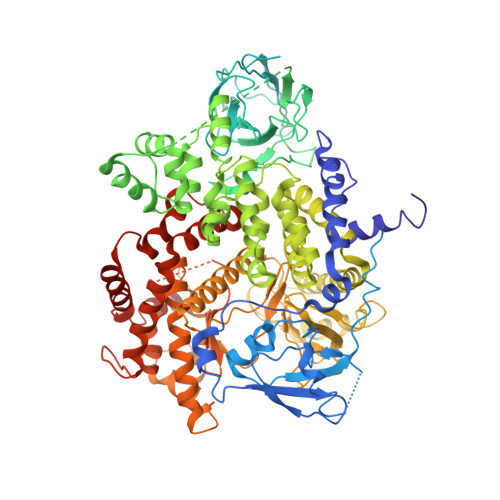A Selective Inhibitor Reveals Pi3Kgamma Dependence of T(H)17 Cell Differentiation.
Bergamini, G., Bell, K., Shimamura, S., Werner, T., Cansfield, A., Muller, K., Perrin, J., Rau, C., Ellard, K., Hopf, C., Doce, C., Leggate, D., Mangano, R., Mathieson, T., O'Mahony, A., Plavec, I., Rharbaoui, F., Reinhard, F., Savitski, M.M., Ramsden, N., Hirsch, E., Drewes, G., Rausch, O., Bantscheff, M., Neubauer, G.(2012) Nat Chem Biol 8: 576
- PubMed: 22544264
- DOI: https://doi.org/10.1038/nchembio.957
- Primary Citation of Related Structures:
4AOF - PubMed Abstract:
We devised a high-throughput chemoproteomics method that enabled multiplexed screening of 16,000 compounds against native protein and lipid kinases in cell extracts. Optimization of one chemical series resulted in CZC24832, which is to our knowledge the first selective inhibitor of phosphoinositide 3-kinase γ (PI3Kγ) with efficacy in in vitro and in vivo models of inflammation. Extensive target- and cell-based profiling of CZC24832 revealed regulation of interleukin-17-producing T helper cell (T(H)17) differentiation by PI3Kγ, thus reinforcing selective inhibition of PI3Kγ as a potential treatment for inflammatory and autoimmune diseases.
- Cellzome AG, Heidelberg, Germany.
Organizational Affiliation:

















